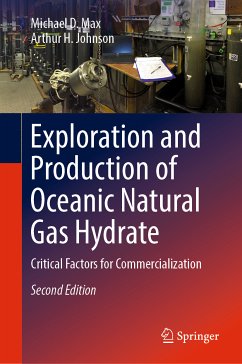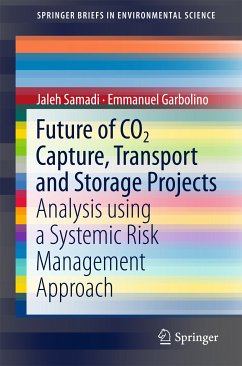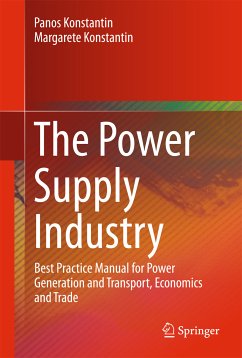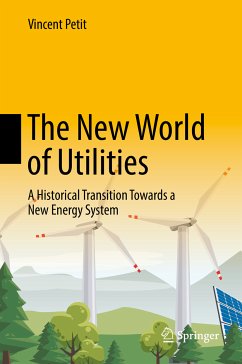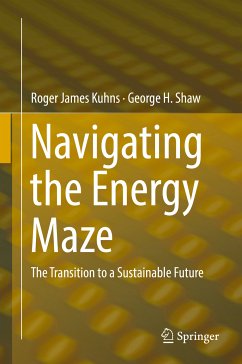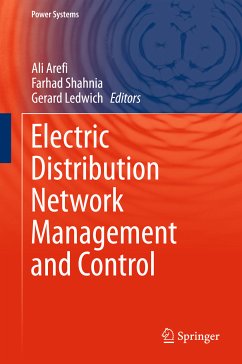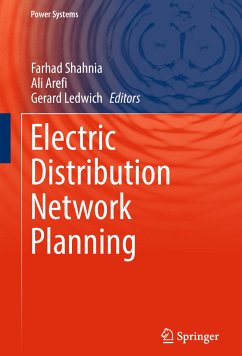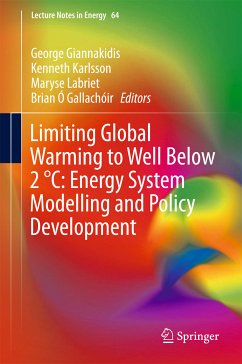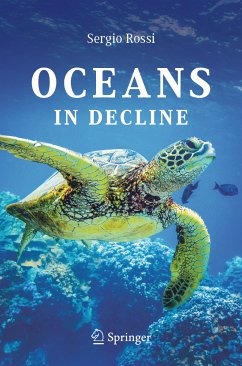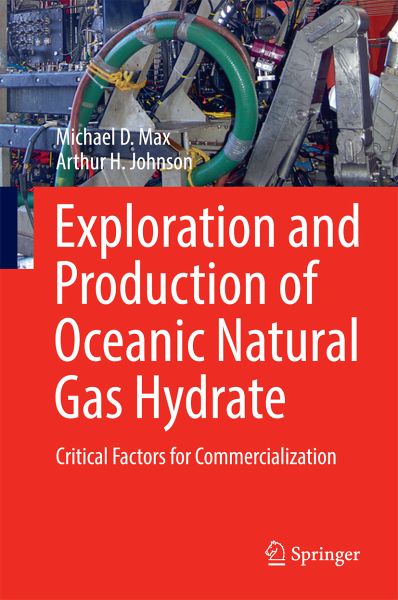
Exploration and Production of Oceanic Natural Gas Hydrate (eBook, PDF)
Critical Factors for Commercialization
Versandkostenfrei!
Sofort per Download lieferbar
160,95 €
inkl. MwSt.
Weitere Ausgaben:

PAYBACK Punkte
80 °P sammeln!
This book describes aspects of the natural gas hydrate (NGH) system that offer opportunities for the innovative application of existing technology and development of new technology that could dramatically lower the cost of NGH exploration and production. It is written for energy industry professsionals and those concerned with energy choices and efficiencies at a university graduate level. The NGH resource is compared with physical, environmental, and commercial aspects of other gas resources. The authors' theme is that natural gas can provide for base and peak load energy demands during the t...
This book describes aspects of the natural gas hydrate (NGH) system that offer opportunities for the innovative application of existing technology and development of new technology that could dramatically lower the cost of NGH exploration and production. It is written for energy industry professsionals and those concerned with energy choices and efficiencies at a university graduate level. The NGH resource is compared with physical, environmental, and commercial aspects of other gas resources. The authors' theme is that natural gas can provide for base and peak load energy demands during the transition to and possibly within a renewable energy future. This is possibly the most useful book discussing fossil fuels that will be a reference for environmentalists and energy policy institutions, and for the environmental and energy community.
Dieser Download kann aus rechtlichen Gründen nur mit Rechnungsadresse in A, B, BG, CY, CZ, D, DK, EW, E, FIN, F, GR, HR, H, IRL, I, LT, L, LR, M, NL, PL, P, R, S, SLO, SK ausgeliefert werden.



